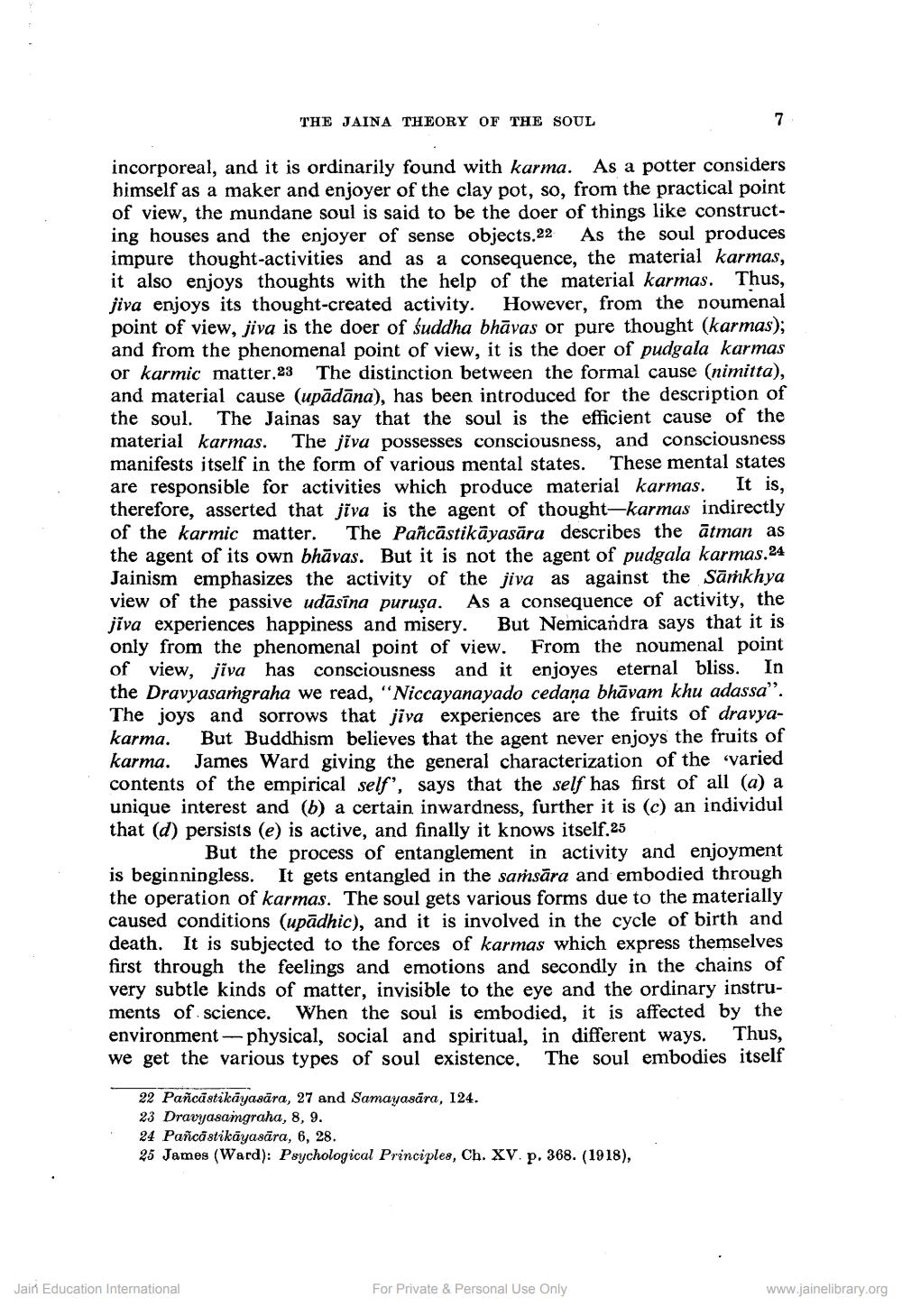________________
THE JAINA THEORY OF THE SOUL
incorporeal, and it is ordinarily found with karma. As a potter considers himself as a maker and enjoyer of the clay pot, so, from the practical point of view, the mundane soul is said to be the doer of things like constructing houses and the enjoyer of sense objects.22 As the soul produces impure thought-activities and as a consequence, the material karmas, it also enjoys thoughts with the help of the material karmas. Thus, jiva enjoys its thought-created activity. However, from the noumenal point of view, jiva is the doer of suddha bhavas or pure thought (karmas); and from the phenomenal point of view, it is the doer of pudgala karmas or karmic matter.23 The distinction between the formal cause (nimitta), and material cause (upādāna), has been introduced for the description of the soul. The Jainas say that the soul is the efficient cause of the material karmas. The jiva possesses consciousness, and consciousness manifests itself in the form of various mental states. These mental states are responsible for activities which produce material karmas. It is, therefore, asserted that jiva is the agent of thought-karmas indirectly of the karmic matter. The Pañcästikäyasāra describes the atman as the agent of its own bhāvas. But it is not the agent of pudgala karmas.24 Jainism emphasizes the activity of the jiva as against the Samkhya view of the passive udāsīna purușa. As a consequence of activity, the jiva experiences happiness and misery. But Nemicandra says that it is only from the phenomenal point of view. From the noumenal point of view, jiva has consciousness and it enjoyes eternal bliss. In the Dravyasamgraha we read, "Niccayanayado cedaṇa bhavam khu adassa". The joys and sorrows that jiva experiences are the fruits of dravyakarma. But Buddhism believes that the agent never enjoys the fruits of karma. James Ward giving the general characterization of the varied contents of the empirical self', says that the self has first of all (a) a unique interest and (b) a certain inwardness, further it is (c) an individul that (d) persists (e) is active, and finally it knows itself.25
But the process of entanglement in activity and enjoyment is beginningless. It gets entangled in the samsara and embodied through the operation of karmas. The soul gets various forms due to the materially caused conditions (upadhic), and it is involved in the cycle of birth and death. It is subjected to the forces of karmas which express themselves first through the feelings and emotions and secondly in the chains of very subtle kinds of matter, invisible to the eye and the ordinary instruments of science. When the soul is embodied, it is affected by the environment-physical, social and spiritual, in different ways. Thus, we get the various types of soul existence. The soul embodies itself
22 Pañcastikāyasāra, 27 and Samayasara, 124.
23 Dravyasamgraha, 8, 9.
24 Pañcastikayasāra, 6, 28.
25 James (Ward): Psychological Principles, Ch. XV. p. 368. (1918),
Jain Education International
7
For Private & Personal Use Only
www.jainelibrary.org




